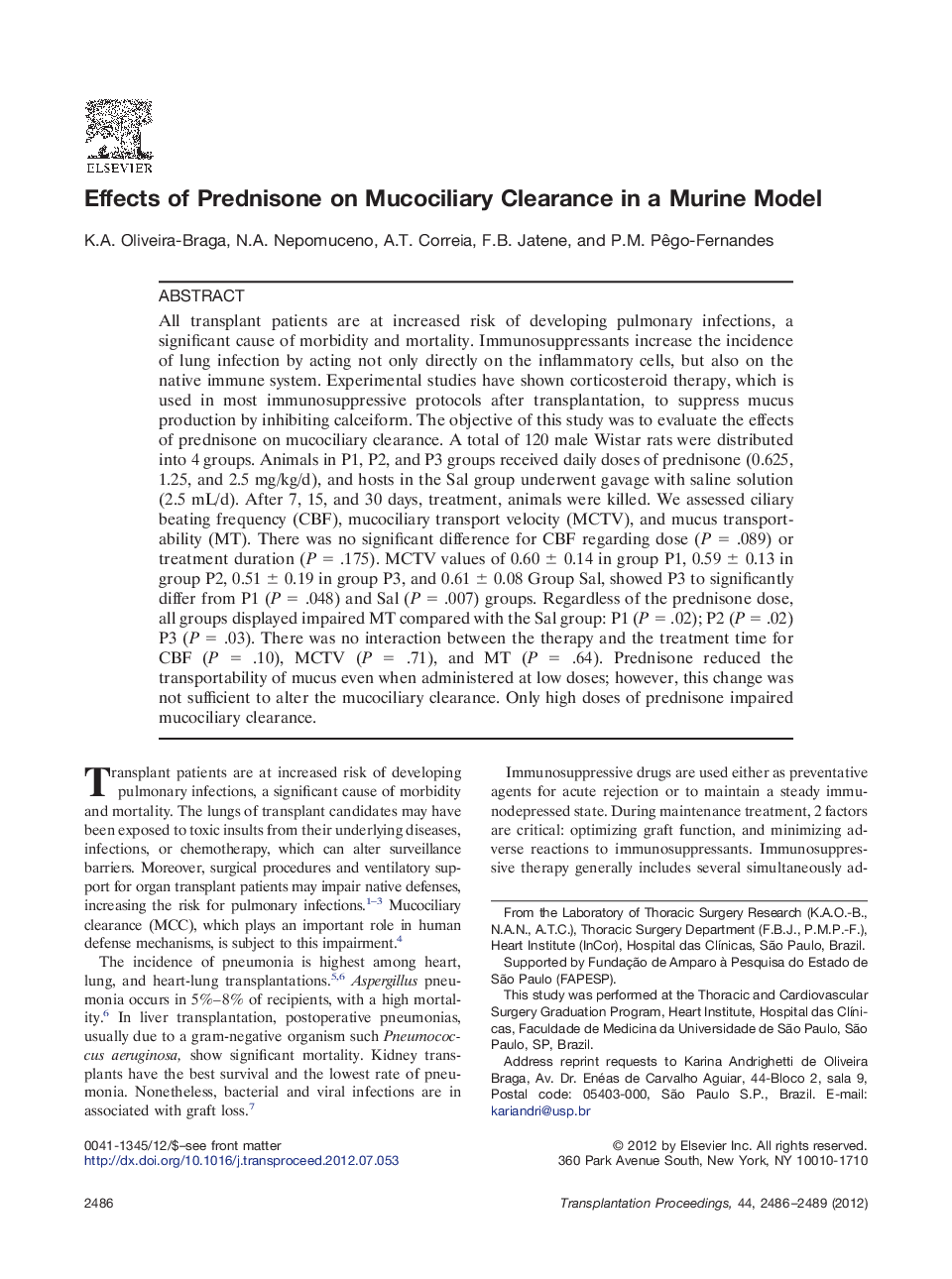| Article ID | Journal | Published Year | Pages | File Type |
|---|---|---|---|---|
| 6248120 | Transplantation Proceedings | 2012 | 4 Pages |
Abstract
All transplant patients are at increased risk of developing pulmonary infections, a significant cause of morbidity and mortality. Immunosuppressants increase the incidence of lung infection by acting not only directly on the inflammatory cells, but also on the native immune system. Experimental studies have shown corticosteroid therapy, which is used in most immunosuppressive protocols after transplantation, to suppress mucus production by inhibiting calceiform. The objective of this study was to evaluate the effects of prednisone on mucociliary clearance. A total of 120 male Wistar rats were distributed into 4 groups. Animals in P1, P2, and P3 groups received daily doses of prednisone (0.625, 1.25, and 2.5 mg/kg/d), and hosts in the Sal group underwent gavage with saline solution (2.5 mL/d). After 7, 15, and 30 days, treatment, animals were killed. We assessed ciliary beating frequency (CBF), mucociliary transport velocity (MCTV), and mucus transportability (MT). There was no significant difference for CBF regarding dose (P = .089) or treatment duration (P = .175). MCTV values of 0.60 ± 0.14 in group P1, 0.59 ± 0.13 in group P2, 0.51 ± 0.19 in group P3, and 0.61 ± 0.08 Group Sal, showed P3 to significantly differ from P1 (P = .048) and Sal (P = .007) groups. Regardless of the prednisone dose, all groups displayed impaired MT compared with the Sal group: P1 (P = .02); P2 (P = .02) P3 (P = .03). There was no interaction between the therapy and the treatment time for CBF (P = .10), MCTV (P = .71), and MT (P = .64). Prednisone reduced the transportability of mucus even when administered at low doses; however, this change was not sufficient to alter the mucociliary clearance. Only high doses of prednisone impaired mucociliary clearance.
Related Topics
Health Sciences
Medicine and Dentistry
Surgery
Authors
K.A. Oliveira-Braga, N.A. Nepomuceno, A.T. Correia, F.B. Jatene, P.M. Pêgo-Fernandes,
